The 39th president of the United States, Jimmy Carter, passed away at the age of 100.
In February 2023, the former president went into hospice care.
According to the Carter Centre, Jimmy Carter, the 39th president of the United States and a former peanut farmer whose belief in a “competent and compassionate” government helped propel him into the White House, passed away on Sunday at his Plains, Georgia, home. He was 100 years old.
Shortly before the late president’s nonprofit Carter Centre announced the news on X, the Atlanta Journal-Constitution broke the story first. “Our founder, former U.S. President Jimmy Carter, passed away this afternoon in Plains, Georgia,” the organisation’s message stated.
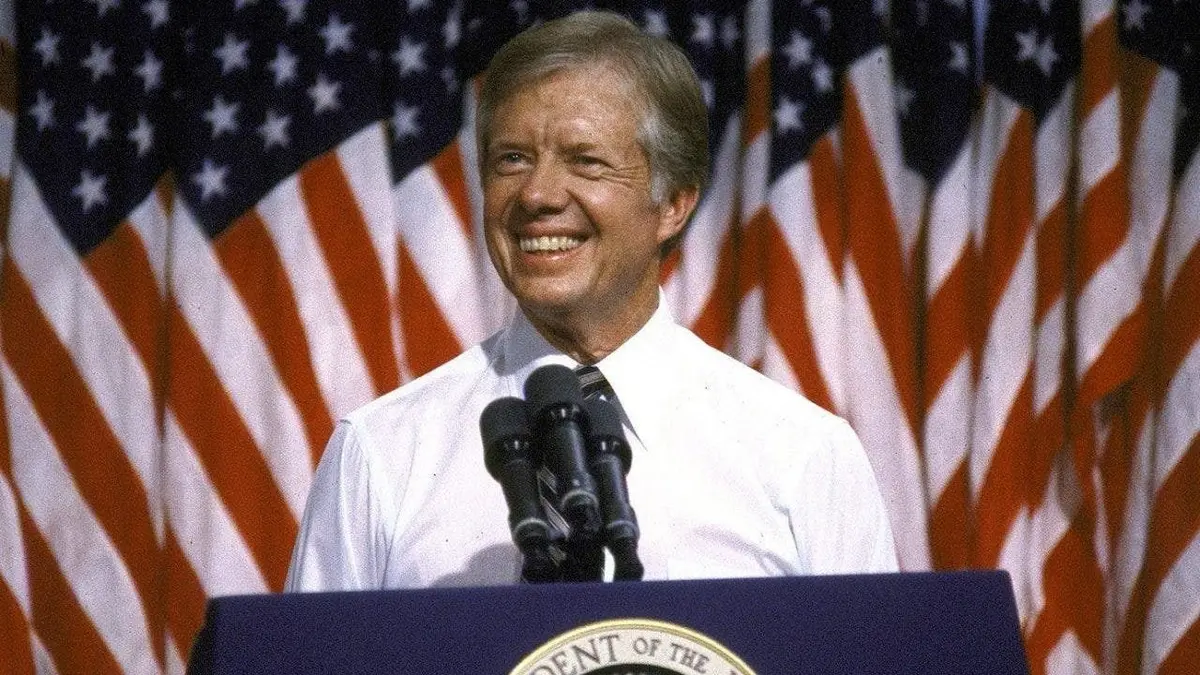
Jimmy Carter served as the 39th president of the United States from 1977 to 1981. (Diana Walker/Getty Images, File)
His exact cause of death was unknown. Carter died on November 19, 2023, following the death of his wife, Rosalynn. She died at the age of 96, with her family by her side, at the Carter home in Plains, just days after being put to hospice care.
The late former president entered hospice care in February 2023. Carter survived for years after having a “small mass” removed from his liver in early August 2015, only to reveal later that month that he had liver cancer that had spread throughout his body.
The Carter family had a history of cancer, with the former president losing his father, brother, and 2 sisters to pancreatic cancer. His mother had breast cancer that eventually progressed to her pancreas.
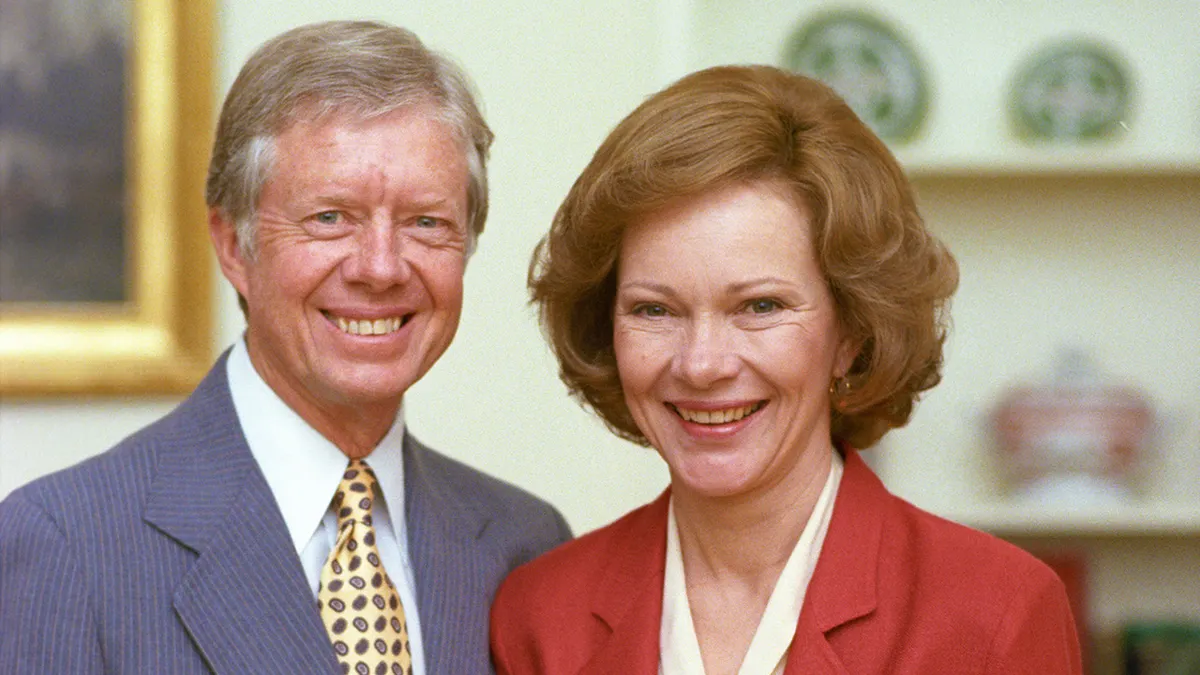
President Jimmy Carter with his wife, Rosalynn Carter. (Universal History Archive/Universal Images Group, File)
Funeral details were still being planned, but the Carter Center reported he would be buried in Plains following public observances in Washington, D.C., and Atlanta. Instead of flowers, the family preferred donations to the Carter Centre. The soft-spoken leader with a trademark Georgia drawl saw his one-term presidency marred by a domestic economic collapse and an international hostage crisis.
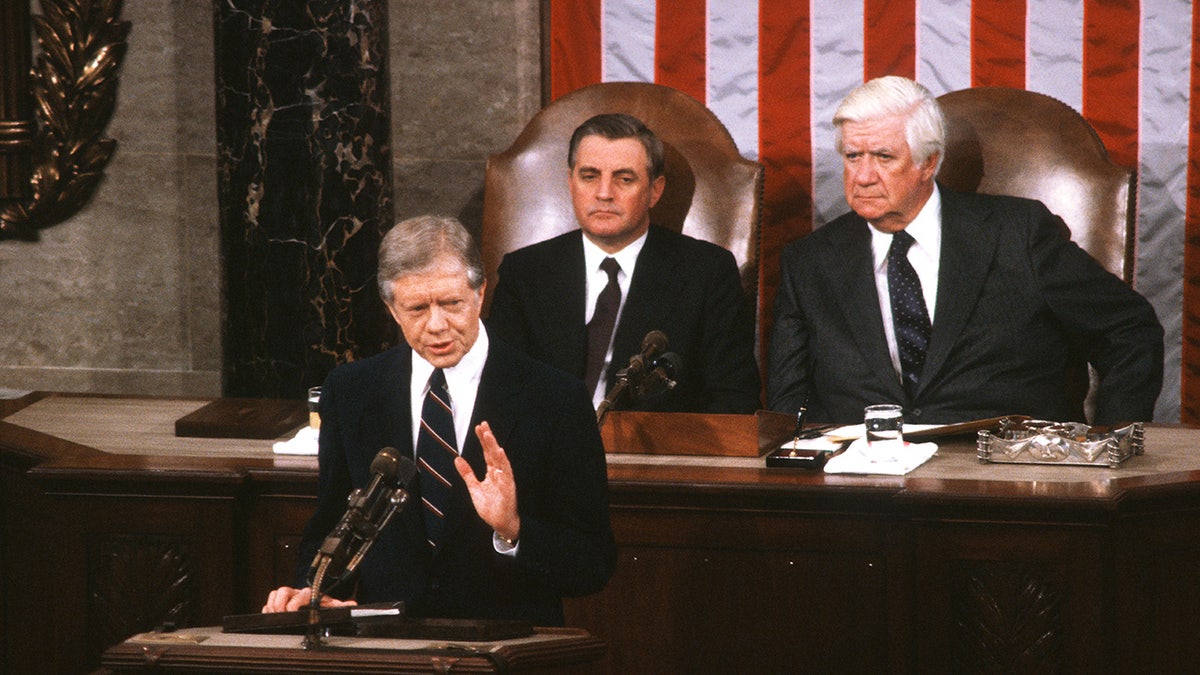
Then-Vice President Walter Mondale and then-Speaker of the House Tip O’Neill listen as President Jimmy Carter delivers his State of the Union Address to a joint session of the U.S. Congress in the Capitol on Jan. 23, 1980. (Arnie Sachs/CNP/Getty Images, File)
His commitment to service was evident throughout his post-presidential life, but he also made a number of occasionally contentious decisions as he continued to dabble in international issues, especially those pertaining to the Israeli-Palestinian conflict. In 2009 and 2015, Carter met with Hamas’s leadership, which is a Palestinian representative and a terrorist organisation. He denounced Israel’s 2014 raids against Hamas, claiming that there was “no justification in the world for what Israel is doing.”
In 1924, James Earl Carter Jr. was born in the agricultural community of Plains. Being a farmer’s kid, Carter inherited a passion for the land and the working-class and lower-class people who farmed it that would serve him well in both his personal and professional life.
However, Carter first looked for a way out of the mud of Plains, and after graduating from the U.S. Naval Academy, he served in the post-World War II navy as a submariner, rising to the rank of lieutenant.
In 1946, Carter married Plains native Rosalynn Smith, the same year he received his Academy degree.
Carter resigned his naval commission and went back to his and Rosalynn’s Plains origins after his father passed away in 1953. While Rosalynn ran a farm supply business in their little Georgia town, the young guy took charge at the family farm.
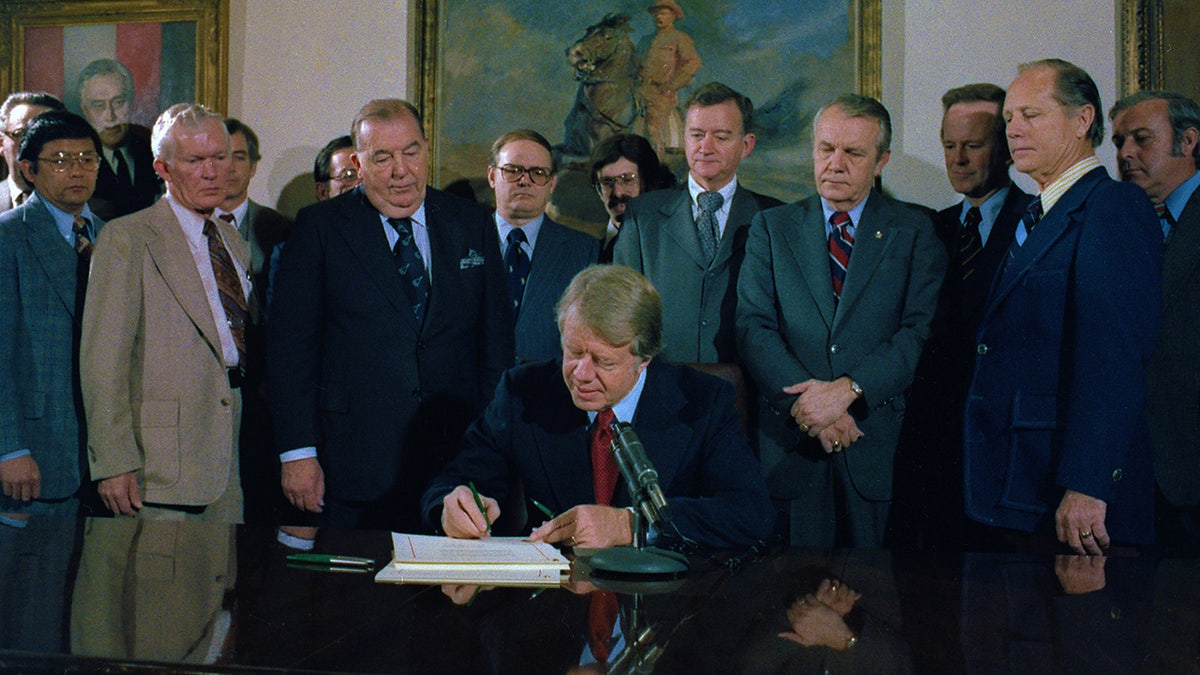
Jimmy Carter signs the Federal Mine Safety and Health Amendments Act of 1977 on Nov. 9, 1977. (Hum Images/Universal Images Group, File)
Carter soon left the farm fields behind, though, as he embarked on a political career that would bring him the highest office in the country in just 14 years.
First elected to the Georgia Senate in 1962, Carter went on to become the state’s governor in 1971 after his 1966 run for governor was unsuccessful.
Growing become a national leader of the Democratic Party, Carter defeated President Gerald Ford in the 1976 presidential election by capitalising on public dissatisfaction with former President Richard Nixon and Ford’s pardon of Nixon.
During his time in the White House, Carter led the negotiations to negotiate a nuclear limitation pact with the Soviet Union and established full diplomatic ties with China. He established a number of conservation initiatives at home, demonstrating the same passion for the environment as a young Plains farmer and as president.
Among his greatest personal achievements, he has mentioned the Camp David Accords, which established peace between Egypt and Israel, and the Panama Canal treaties.
In 2014, he told The Washington Post, “We focused on peace.” “We never shot a bullet or dropped a bomb on anyone.”
However, maintaining peace wasn’t always simple, and his obvious weakness in handling bad actors probably played a part in Ronald Reagan’s crushing victory in 1980.
The Iran hostage issue overshadowed his final 14 months as president. Following the revolution, the new government kidnapped 52 American hostages. Carter was unable to collect the jailed Americans or arrange their release. In a blatant disrespect, Iran ultimately released the 52 after 444 days, on the same day Carter departed office.
And, while Carter established the Departments of Education and Energy, two government bureaucracies that have since been popular targets for Republicans, a nationwide energy crisis also hampered his presidency. Almost every late 1970s documentary or debate includes footage of gas queues and rising gas prices.
Domestic and geopolitical challenges prompted Senator Ted Kennedy to take the unusual step of challenging Carter for the Democratic presidential nomination. Carter just survived that war, but he was not so fortunate in November 1980, when Reagan won 44 states and the presidency.
Domestic and geopolitical challenges prompted Senator Ted Kennedy to take the unusual step of challenging Carter for the Democratic presidential nomination. Carter just survived that war, but he was not so fortunate in November 1980, when Reagan won 44 states and the presidency.
After leaving the White House, Carter, who had written 28 books, was named a distinguished professor at Emory University in Atlanta and established The Carter Centre, which focusses on national and international public affairs. Carter told The Associated Press that he enjoyed the “best times” of his life after founding the organisation in 1982.
“This beautiful place on Earth has set moral and ethical standards that exemplify what a superpower like America ought to be,” Carter remarked of the centre in October.
Carter, recalling his childhood manual labour in Plains, was frequently seen volunteering and fundraising for Habitat for Humanity, where he helped build homes for the underprivileged.
Carter also received the Nobel Peace Prize in 2002. He was also a member of The Elders, a group of independent global leaders who had left politics, including South African President Nelson Mandela, Irish President Mary Robinson, and United Nations Secretary-General Kofi Annan.
Carter, a very religious guy who served as a deacon at Plains’ Maranatha Baptist Church, spent his free time fishing, running, and carpentry.
Carter leaves behind four children, 11 grandchildren, and 13 great-grandchildren.
Please Share this Article with your Friends.
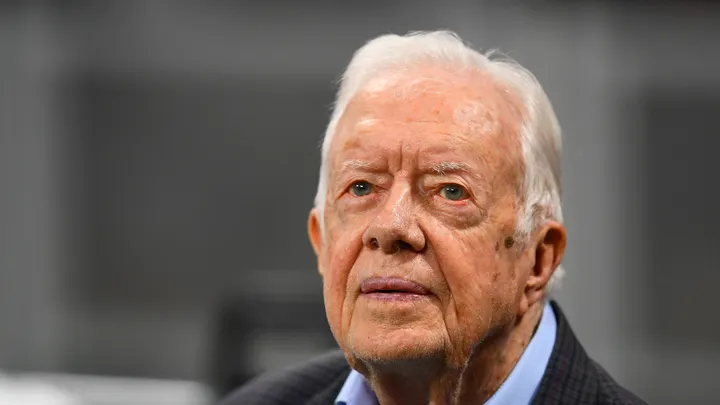
Facebook Comments